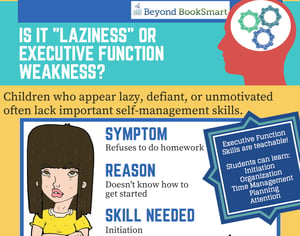When I was little, I can remember being told the old adage, “Sticks and stones will break my  bones, but words will never hurt me.” While I understand that it was meant to encourage me and to make me feel better when someone had said mean words to me, as an adult and as an educator, I now find that phrase a little dishonest. Words have meaning and they can - and do -hurt. But words can also encourage and support, and so I advocate being mindful of the kind of language that we use around our students.
bones, but words will never hurt me.” While I understand that it was meant to encourage me and to make me feel better when someone had said mean words to me, as an adult and as an educator, I now find that phrase a little dishonest. Words have meaning and they can - and do -hurt. But words can also encourage and support, and so I advocate being mindful of the kind of language that we use around our students.
What I Learned NOT to Say to My Students
One of the most grievous errors I made as a high school teacher was to introduce a math concept as “easy.” I can vividly recall the crestfallen look on the faces of a handful of students after explaining the concept when they discovered that, no, in fact, it was not easy for them. Easy, simple, basic — these words and others like them are relative. What I realized in that moment is that they set an unfair expectation that can inadvertently encourage feelings of failure. Imagine how many times a child with learning differences may have heard that something is easy and each time they discover that task or concept is actually quite difficult for them, how might they feel? How might those accumulated failures affect how they see themselves as learners?
Some Helpful Alternatives to Consider
Middle and high school years are vital times in the development of one’s sense of self. It's not surprising that academic struggles can often be one source of students' low self-esteem. We can help our students prevent their challenges from becoming holes in their confidence by altering how we talk to them about difficulties, setbacks, and moments of frustration. Of course, it's not as simple as it seems because we tend to have ingrained ways of framing challenges. Phrases we might think of as encouraging, such as “I know you can do it,” may not feel hopeful to a student who does not have the tools to approach a topic or assignment. Instead, it's better to find out specifically what about the material is challenging or causing the block.
A little detective work on our part is a more effective way to provide substantive support: ask questions, the more specific the question, the better. For example, if a student is having difficulty with a reading comprehension assignment, rather than asking something like, “What don’t you understand?” (which can come off as critical and can be too open-ended a question for some students to formulate a response), consider beginning by asking: "Are there any questions in the assignment that you’re unsure what is being asked?" or "Can you tell me what part seems clear to you?" or "Can you show me where in your reading of the passage that it became confusing?" After these initial inquiries, continue to follow up and pinpoint the trouble zones. I cannot guarantee, of course, that your student will want to answer the questions, but creating the expectation that you are there, judgment free, to help if help is desired is an important step.
If a student is stuck on how to do a step-by-step process (long division, for example) one alternative to saying "It's easy, I'll show you," is "I’ll work through the first part/problem with you, and then you can try the next one. I’ll still be here to answer questions."
Becoming mindful of our language and word choices takes practice and reflection - but it is well worth the effort. In general, keeping discussions as much as possible about the material and using specific, objective language to do so is a good place to start. The less judgment (whether intended or perceived) we bring to our interactions with our students around academics, the safer, more supported, and more willing to take risks they will become.
Photo above by Brett Jordan on Unsplash
 Molly Lemieux is a coach and supervisor with Beyond BookSmart and a high school English teacher at the Latin School of Chicago with over ten years experience working with diverse learners. A graduate of Williams College with a B.A. in English and Spanish, Molly earned her M.A. in literature at Middlebury College. Previously, she taught at two independent schools that cater primarily to students with learning differences. Her time at these schools reshaped Molly’s pedagogical philosophy; she believes passionately that every student deserves the opportunity to feel successful in an educational environment of respect and support where a student’s strengths are valued and he or she is provided with the knowledge and skills to flourish in the classroom and in the world.
Molly Lemieux is a coach and supervisor with Beyond BookSmart and a high school English teacher at the Latin School of Chicago with over ten years experience working with diverse learners. A graduate of Williams College with a B.A. in English and Spanish, Molly earned her M.A. in literature at Middlebury College. Previously, she taught at two independent schools that cater primarily to students with learning differences. Her time at these schools reshaped Molly’s pedagogical philosophy; she believes passionately that every student deserves the opportunity to feel successful in an educational environment of respect and support where a student’s strengths are valued and he or she is provided with the knowledge and skills to flourish in the classroom and in the world.
Please see this page for comprehensive information about Executive Function in Elementary students.
 Negative words like lazy, defiant, or unmotivated are often used to describe children who have Executive Function challenges. Download our infographic that shows 5 symptoms of Executive Function difficulties - and the teachable skills that can help address those challenges.
Negative words like lazy, defiant, or unmotivated are often used to describe children who have Executive Function challenges. Download our infographic that shows 5 symptoms of Executive Function difficulties - and the teachable skills that can help address those challenges.

